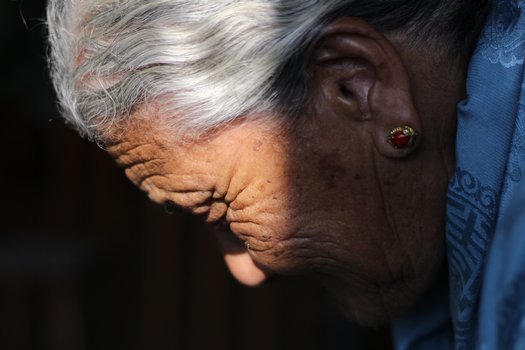
An elderly Tibetan woman. Photo: Harmandeep Gill
Helle Wentzer: The Human Condition of Aging. Theoretical Considerations for a Cross-Cultural Understanding of Practicing a Good (Old) Life
Arendt in "The Human Condition" discerns three principal modes of activity, which sustain and cultivate a good life. "Labor" is related to biological and cyclic conditions of the body, and daily activities of eating, washing, dressing etc. "Work" relates to the morality of man, as artefacts are created, that objectify human lives, and testify that we have lived. "Action" concerns the indeterminacy of the future and interdependency of humans on each other, thus to natality, the gift of being able to start something new. Building on the empirical studies this project explores how labor, work, and action unfold from radical changes in the "body", "home spaces" and relations to "intimate others". Special attention is drawn to the role of narratives in order to identify how "aporias" (Ricoeur 1988) that disrupt how "lived time" is experienced, are reconfigured into meaningful "human time". In close collaboration with the artistic/aesthetic projects, this project explores theoretically the role of creativity and imagination in the good old life, i.e. mimetic processes of poetic interpretation in which experiences of aging are textualized and materialized into everyday narrations or actions and works of art, both with the potential to reconfigure cultural understandings of old age